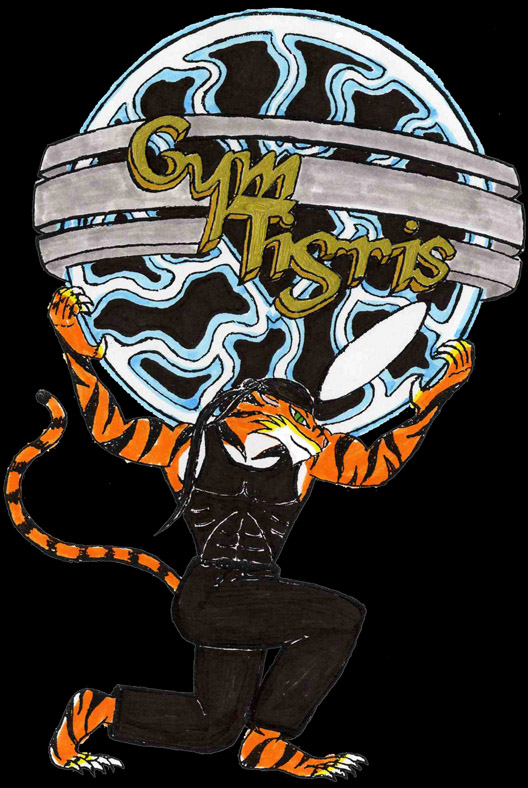For the first installment of the Gym
Tigris series,
we will briefly discuss a subject utilized as a Black Belt
thesis.
The use of weight resistance to aid in martial arts techniques and
forms
training. The use of light weight resistance has been found to
create
a slightly more relaxed method of execution when the resistance is
taken
away. There have been tales of systems of the martial arts that
have
been using methods such as this for many, many years; and
continue
to use them to this day. Here's an everyday example of this
concept:
you are mowing your lawn with a grass catching bag on the back.
As
the bag starts to fill and become heavy, the mower becomes more awkward
to move. However, when you empty the grass from the bag, the
mower
seems lighter and easier to move. Now the actual weight of the
mower
never changed. Yet, there is a slight, yet noticeable weight
difference.
There are examples of this idea in several areas of the martial
arts.
One of our favorites (because it fits so well into Kenpo training) is
found
in Arnis or Escrima. It has been said that the training with
sticks
or knives can compliment or even improve your empty hand
training.
The reason being is that for one, they have great similarities, and
two,
when taking away the weight of the sticks or knives, your empty hands
will
feel lighter and more quick to reach their target. This would
probably
explain the sale of harder, and more dense wood in clubs. Given
that
there has been a great intensity in the need and want to train with
these
tools in the American Kenpo community, the same responses have more
then
likely been examined.
Yet it doesn't end there, in fact, this is where our concepts will
begin.
Techniques, or a series of basic movements put together in a
self-defense
situation, and katas, or a series of techniques put together in an
expanded
self-defense situation, are a fantastic place to start with weight
resistance.
These examinations of basic concepts can be considered the heart of the
style or system you study. The idea of adding weight resistance
is
easy, simply take a set of hand and foot weights that are just heavy
enough
to be slightly awkward, but not heavy enough to be over-bearing.
A good example of these would be aerobic dumbbells and velcro,
adjustable
leg weights. Then simply execute either basics (blocks, hand
strikes,
kicks, take-downs), techniques, or katas (forms) as effectively as
possible.
Become aware and try to perfect your form and execution of these
movements,
due to the fact this type of training could be considered
concentrated.
Move a great deal more slowly then you normally would due to the added
weight creating more momentum to deal with. Always be mindful of
the fact that 10 perfectly executed movements are better then 100
sloppy
movements. For Kenpo practitioners specifically, sets (if you are
still doing them in your group) are the best place to start.
Forms
are just as good. Once you have a good feel for to motion you are
trying to execute, try the self-defense techniques. More
importantly,
try just putting basics together in a self-defense context with no real
set pattern. The more you train with motion, the closer you will
get to the spontaneous stage of motion.
Once you have worked with resistance for a short amount of time, remove
the resistance and try the same movements again. The goal is to
become
more relaxed in whatever you are trying to accomplish. Whether it
be in the martial arts or in life. With some practice (which is
always
important) you should find more relaxed, focused, and accurate
motion.
Any form of positive training is good. This is simply an idea
that
may help you to have a better understanding of what you are trying to
accomplish.
|
